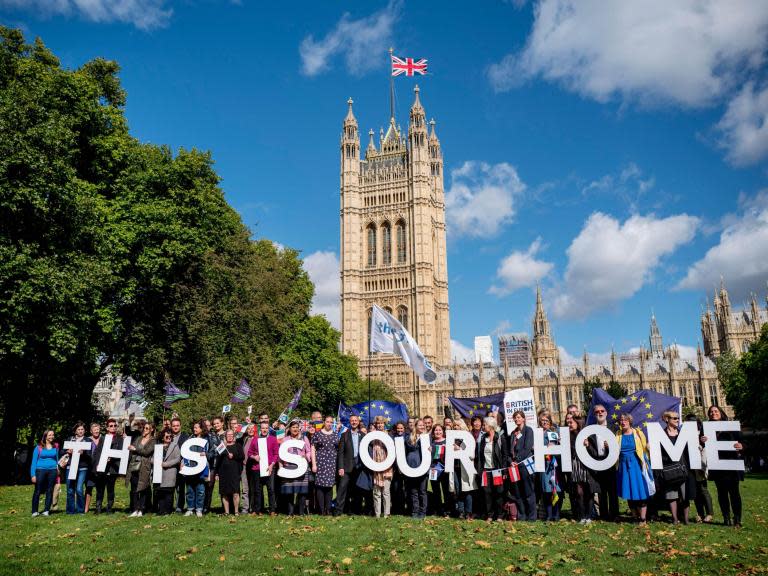With EU nationals already struggling to stay in the UK, I can only hope my family is not torn apart by Brexit
Back in December the Home Office released a video about the new settled status scheme for EU nationals. The video showed people smiling and looking happy. But the tone of the video was widely condemned as being hopelessly out of touch with the feelings of the 3.9 million EU nationals who have made the UK their home.
When I knocked on doors for Remain in the referendum, I met entire households who were unable to vote. Now, they are forced to make a choice they never anticipated having to make and endure aggravation that they never expected to put up with – just to stay in their home.
My wife, who is an EU national, will have to go through the settled status process in a few months time. Originally when I heard the system was being made simpler, with no more than 85 pages, I felt reassured. Now, following the roll out of the system, I am concerned.
Despite being the most popular brand of phone in the UK, you can’t scan documents to apply for settled status with an iPhone. Yes – this has been rolled out by the same government whose ministers still claim we can use technology to fix the Irish border conundrum. If you don’t have an Android you can phone a friend, go to a processing centre or send in your passport – and be without it for months on end.
That might seem fine to some – but what if you need to travel at short notice to visit elderly parents? My wife’s father is in his 80s and lives abroad. If she submits her passport she would have to apply for an emergency travel document to leave the UK.
You would hope that once you have applied and have the right paperwork, you can crack open the prosecco and wait for the Home Office to confirm you can stay. However, that may not be the case.
In 2017, the Home Office refused a staggering 27 per cent of applications from EU nationals.
And this week, an EU national tweeted that she had met all of the requirements, yet was told she couldn’t have her settled status confirmed because of a gap in employment records – despite the fact that she has been with the same employer since 2005.
Others have faced challenges if they have lived in the UK for the requisite five years but not had a national insurance number for the full five years, leading to delays in confirmation of their settled status.
The system only enables you to scan up to 10 documents – putting unnecessary barriers in the way for those who have to apply. Another user tried to book in an appointment to scan her documents, only to find the link did not work.
The new system was supposed to be quicker, slicker and easier to use – but I fear stories like this will become the norm over the next couple of months.
In addition to this, the application process becomes a lot more difficult if you are not computer literate. Such applicants will require extensive help to complete the application process. When a trial was done on the system, 65 people from the support group Roma completed the application but only seven were able to complete the application unaided.
I hope the process will be smooth when it is my wife’s turn to apply. We already have a lot to deal with at the moment, including a child with special needs and ageing parents – the uncertainty of whether she can continue to reside in her home is stress that we do not need.
Given the past performance of the Home Office, Windrush 2.0 may well be around the corner. I can only hope my family are not caught up in it.

 Yahoo News
Yahoo News 

